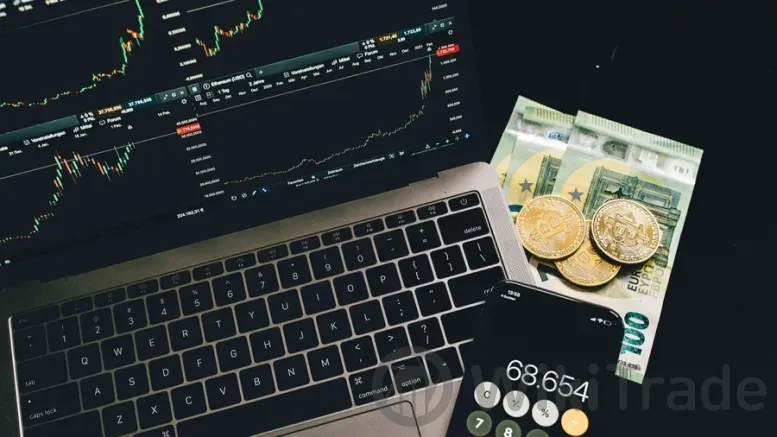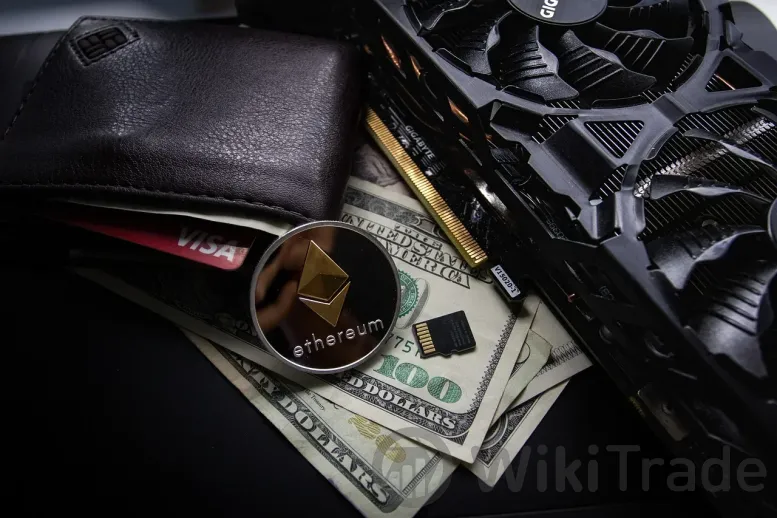Is crypto a good investment?
Abstract: Investing in cryptocurrencies can be rewarding, but it comes with a high level of risk because the market is highly volatile and largely unregulated. Cryptocurrencies like Bitcoin and Ether have shown great potential and have grown significantly over the last decade. They can potentially yield substantial returns if invested wisely. However, the price of cryptocurrencies can go down as well. It's important to do thorough research, consider your financial goals and risk tolerance, and possibly consult with a financial advisor before investing in cryptocurrencies.
Cryptocurrencies have the potential for high returns, as evidenced by their explosive growth in recent years. Bitcoin, for example, has risen from a fraction of a cent in 2009 to over $60,000 in 2021. Unlike traditional currencies, cryptocurrencies are not controlled by any central authority. This can be appealing to some investors who value financial independence and security. Cryptocurrencies are based on blockchain technology, which has the potential to revolutionize various industries. Investing in crypto can be seen as a way to get in on the ground floor of this potentially transformative technology.

Cryptocurrencies are notoriously volatile, meaning their prices can fluctuate wildly in short periods. This can lead to significant losses if you're not careful. The cryptocurrency market is still largely unregulated, which creates uncertainty and risk for investors. Governments around the world are still developing their approach to crypto, and it's possible that future regulations could negatively impact the market. The cryptocurrency market is rife with scams and fraudsters. It's important to do your research carefully before investing in any cryptocurrency.
If you're not comfortable with the possibility of losing a significant amount of money, then crypto may not be a good investment for you. If you're looking for a long-term investment that will provide steady growth, then crypto may not be the best option. However, if you're willing to take on some risk for the potential of high returns, then crypto could be a good fit. It's important to do your research before investing in any cryptocurrency. There are many resources available online and in libraries to help you learn more about the market.
Best long-term cryptocurrency investment
Top Contenders
Bitcoin (BTC): The OG, with the largest market cap and established brand recognition. Offers potential for stability and growth, but also high volatility.
Ethereum (ETH): The leading platform for smart contracts and DeFi, with a vibrant ecosystem and strong development roadmap. May benefit from continued blockchain adoption.
Polkadot (DOT): Focuses on interoperability between different blockchains, addressing a crucial limitation. Offers potential for long-term value as blockchain usage expands.
Cardano (ADA): Known for its academic approach and focus on scalability and sustainability. Could be a good choice for those seeking a more stable and future-proof investment.
Chainlink (LINK): Provides secure connections between real-world data and blockchain applications. Plays a vital role in DeFi and other emerging sectors, with potential for long-term demand.

Research the team, technology, and community behind each project. Understand their mission, roadmap, and competitive advantages. Analyze current and projected adoption rates, regulatory landscape, and overall market sentiment towards blockchain technology. Personal risk tolerance: Be honest about your comfort level with volatility. Crypto markets are prone to significant swings, so choose investments that align with your risk appetite. Spread your investments across multiple projects with different strengths and vulnerabilities. This mitigates risk and increases exposure to potential growth areas.
Where to invest bitcoins?
This is the simplest option, but it offers little to no potential for growth. However, it can be a good choice if you are primarily concerned about protecting your bitcoins from hacks or loss. You can loan your bitcoins to others and earn interest on them. This is a relatively low-risk option, but the interest rates are generally not very high. These are financial instruments that allow you to invest in Bitcoin without having to buy and store it yourself. This can be a good option if you are not comfortable with the technical aspects of buying and storing Bitcoin.

There are many other cryptocurrencies besides Bitcoin, and some of them may have more potential for growth. However, this is a riskier option than simply holding Bitcoin, as the prices of other cryptocurrencies can be even more volatile. You can try to make money by buying and selling Bitcoin on a cryptocurrency exchange. This can be a risky strategy, but it can also be profitable if you are skilled at it.
ICOs are a way for new cryptocurrency projects to raise money. They can be very risky, as many ICOs fail. However, if you invest in a successful ICO, you could make a lot of money. This is a type of trading that involves borrowing money to amplify your gains. It can be very risky, as you could lose more money than you invested.
How much do you invest in Bitcoin to make money?
Many financial experts recommend allocating no more than 5-10% of your investment portfolio to high-risk assets like Bitcoin. Some recommend starting with a small amount, such as $100, to understand the market before investing more. Consider using a dollar-cost averaging (DCA) strategy, investing a fixed amount of money at regular intervals, to mitigate the impact of volatility.
Ensure you have a plan to manage and pay off existing debt before considering investments. Make sure you have enough savings to cover your living expenses for several months in case of emergencies. Prioritize contributing to your retirement savings before investing in Bitcoin.

Bitcoin is a highly volatile asset, meaning its price can fluctuate significantly in short periods. Consider your comfort level with this risk before investing. If you are uncomfortable with potential losses, consider investing a smaller amount or avoiding Bitcoin altogether.
Are you looking for short-term gains or long-term growth? This will influence how much you invest and how long you hold your Bitcoin. Short-term trading involves more risk and requires active management. Long-term investment in Bitcoin is often seen as a store of value and a hedge against inflation.
What can you do with bitcoins?
Bitcoin's limited supply and perceived inflation hedge properties make it attractive for some as a long-term investment. Buy and sell Bitcoin on cryptocurrency exchanges to capitalize on price fluctuations. This requires market knowledge and carries high risk. Use Bitcoin to buy Ethereum, stablecoins, or other digital assets with various use cases.
Some merchants and companies accept Bitcoin directly for goods and services. Bitcoin transactions are faster and cheaper than traditional international transfers. Donate Bitcoin to support causes you care about.

Platforms allow you to borrow or lend Bitcoin and earn interest. Participate in loyalty programs or earn passive income through staking or DeFi protocols. Use Bitcoin as collateral for loans, participate in liquidity pools, or access other DeFi applications.
Use Bitcoin to purchase in-game items or play blockchain-based games. Invest in unique digital art or collectibles stored on the blockchain using Bitcoin. Support online content creators or artists by tipping them with Bitcoin.
Bitcoin's price can fluctuate significantly, so its value as a payment or investment can be unstable. The regulatory landscape surrounding cryptocurrencies is still evolving, which can create uncertainty. Always store your Bitcoin securely in a reputable wallet and be aware of scams and hacks.
Profitable crypto mining
Different cryptocurrencies have varying mining difficulty and profitability. Ethereum was once the go-to coin for miners, but its shift to Proof-of-Stake (PoS) has made it less accessible. Currently, coins like Monero, Zcash, and Bitcoin Gold are considered more profitable to mine. Mining hardware, You'll need specialized hardware like ASIC miners or graphics cards (GPUs) with high hash rates to solve the complex mathematical problems required for mining. The cost of hardware can be significant, and its efficiency directly impacts profitability. Electricity costs, Mining consumes a lot of electricity, so your energy costs can significantly impact your profits. Consider your electricity rates and potential alternative energy sources like solar power. Joining a mining pool combines your hashing power with others to increase your chances of finding blocks and earning rewards. Solo mining is more challenging but potentially more rewarding if you have the computing power.

Cryptocurrency prices are highly volatile, meaning your mining rewards could fluctuate significantly in value. The mining landscape is becoming increasingly competitive, making it harder to find blocks and earn rewards. Mining hardware advances quickly, so your equipment may become outdated and less profitable over time. Setting up and maintaining a mining rig requires technical knowledge and troubleshooting skills.
Choose a profitable cryptocurrency to mine and compare different mining hardware options. Factor in electricity costs, hardware costs, and maintenance fees to estimate your potential profitability. Unless you have significant hashing power, joining a pool is the most efficient way to mine. Track your hash rate, electricity consumption, and mining rewards to optimize your setup. Keep up with the latest developments in the crypto mining space to adapt your strategies accordingly.
When will crypto go back up?
If the global economy improves and risk appetite increases, it could positively impact cryptocurrencies. For instance, if inflation eases and there are signs of economic recovery, investors might return to riskier assets like crypto. Regulatory uncertainty has been a major drag on the market. Clear regulations from major authorities like the US Securities and Exchange Commission (SEC) could boost investor confidence and attract new capital. Increased adoption by mainstream institutions like banks and investment firms could legitimize crypto and drive up demand. Developments in blockchain technology and related applications like DeFi (decentralized finance) could enhance the utility and value proposition of cryptocurrencies.

Some analysts believe the recent downturn is a normal correction after a strong 2023 and expect a rebound in the second half of 2024, potentially reaching new highs by the end of the year. Others are more cautious, citing various potential headwinds like geopolitical tensions and continued regulatory concerns. They suggest a slower and more gradual recovery over a longer timeframe.
Volatility is inherent to crypto, Expect continued fluctuations in the market, even during bull cycles. Predictions are always uncertain, Don't base your investment decisions solely on any prediction, no matter how confident it sounds. Do your research and understand the fundamental drivers of the market and individual cryptocurrencies before investing. Invest responsibly, Only invest what you can afford to lose and diversify your portfolio.
Bitcoin crypto price
| Source | Price (USD) | 24h Change | 7d Change | Market Cap (USD Billion) |
| CoinMarketCap | $39,939.20 | 0.0007 | -3.83% | $787.15 |
| CoinGecko | $39,944.65 | 0.0014 | -3.91% | $787.64 |
| Binance | $39,948.60 | 0.0047 | -4.25% | $788.02 |
| Coinbase | $39,935.41 | 0.0005 | -3.74% | $787.06 |
| TradingView | $39,942.89 | 0.0012 | -3.88% | $787.50 |
Cryptocurrency what is market cap
| Rank | Cryptocurrency | Market Cap (USD Billion) | Change (24h) | Change (7d) |
| 1 | Bitcoin (BTC) | 787.15 | 0.0007 | -3.83% |
| 2 | Ethereum (ETH) | 240.86 | 0.0242 | -2.68% |
| 3 | Tether (USDT) | 71.4 | -0.01% | -0.01% |
| 4 | Binance Coin (BNB) | 52.95 | 0.076 | -3.46% |
| 5 | USD Coin (USDC) | 46.32 | 0.0005 | 0.00% |
| 6 | XRP (XRP) | 18.94 | 0.0735 | -5.34% |
| 7 | Cardano (ADA) | 16.39 | 0.0395 | -7.10% |
| 8 | Dogecoin (DOGE) | 11.22 | 0.0653 | -10.67% |
| 9 | Polygon (MATIC) | 8.13 | 0.0699 | -4.00% |
| 10 | Polkadot (DOT) | 7.61 | 0.0313 | -4.61% |
Where to buy crypto?
| Platform | Fee Structure | Supported Cryptos | Features | Pros | Cons |
| Coinbase | Simple fee structure. 1% buy/sell for most assets. | 250+ | Easy to use, beginner-friendly, secure. | Simple interface, good educational resources, high liquidity. | Higher fees for smaller transactions, limited customer support. |
| Binance | Lower fees than Coinbase, tiered maker/taker fees. | 500+ | Extensive platform, margin trading, staking options. | Large crypto selection, advanced features, good liquidity. | More complex interface, regulatory concerns, less beginner-friendly. |
| Kraken | Competitive fees, volume discounts. | 100+ | Secure, transparent, margin trading. | Strong security, good reputation, fiat currency pairs. | Limited customer support, less user-friendly interface. |
| Gemini | Flat 1% fee for both buys and sells. | 40+ | Simple, secure, focus on major cryptos. | Easy to use, high liquidity, strong security. | Limited crypto selection, higher fees than some competitors. |
| Crypto.com | Tiered fee structure based on volume. | 250+ | Debit card, margin trading, DeFi access. | Diverse features, loyalty program, good for staking. | Higher fees for smaller transactions, complex platform. |
Important Note
Regulation: Choose a platform that is compliant with relevant regulations in your region.
Security: Prioritize platforms with strong security measures and insurance policies.
Payment methods: Consider the available payment options, including bank transfers, credit cards, and debit cards.
Fees: Compare fee structures and hidden costs to choose the most cost-effective platform.
User interface: Choose a platform with a user-friendly interface that matches your experience level.
Do you pay taxes on crypto?
Whether you pay taxes on crypto depends on your specific circumstances and the laws of your jurisdiction. Here's a general overview of how crypto is taxed in different regions:
| Region | Taxable Events | Capital Gains Tax Rate | Additional Taxes | Notes |
| United States | Selling crypto for fiat or other crypto, using crypto for goods or services, earning crypto rewards, mining crypto | Varies depending on income and holding period (short-term: ordinary income tax rates, long-term: 15% or 20%) | None | IRS provides detailed guidance on crypto taxation. |
| Canada | Similar to the US, with some differences in holding period definitions and tax rates | Varies depending on income and holding period (short-term: income tax rates, long-term: 50% of regular income tax rate) | None | Canada Revenue Agency offers information on crypto taxation. |
| European Union | Selling crypto for fiat or other crypto, exceeding €1,000 in crypto transactions per year | Varies depending on country within the EU | Some countries have additional taxes, such as VAT on crypto purchases. | Each EU member state has its own crypto tax regulations. |
| Australia | Similar to the US, with capital gains tax applying to disposal of crypto assets | Varies depending on income and holding period (short-term: marginal tax rate, long-term: capital gains tax rate of 50%) | None | Australian Taxation Office provides information on crypto taxation. |
| Japan | Similar to the US, with some differences in tax rates and reporting requirements | Varies depending on income and holding period (short-term: progressive income tax rates, long-term: 20% capital gains tax) | None | Japan National Tax Agency offers information on crypto taxation. |
Important Note
Gifting and inheritance: Gifting or inheriting crypto may have tax implications.
Losses: Capital losses from crypto may be used to offset capital gains.
Reporting requirements: Some jurisdictions require reporting crypto holdings on tax returns.
Regulations: Crypto tax regulations are constantly evolving, so it's important to stay up-to-date.
Remember, crypto taxation is a complex topic. It's crucial to seek professional advice to ensure compliance and optimize your tax situation.
Bitcoin release date
| Milestone | Date | Description |
| Bitcoin white paper published | October 31, 2008 | Satoshi Nakamoto introduces the concept of Bitcoin in a white paper titled “Bitcoin: A Peer-to-Peer Electronic Cash System”. |
| Genesis block mined | January 3, 2009 | The first Bitcoin block, also known as the genesis block, is mined, marking the official launch of the Bitcoin network. |
| First real-world Bitcoin transaction | May 22, 2010 | Laszlo Hanyecz pays 10,000 Bitcoins for two pizzas, marking the first real-world use of Bitcoin for a purchase. |
| Price reaches $1 | February 9, 2011 | The price of Bitcoin crosses $1 for the first time, demonstrating its potential value. |
| Mt. Gox hack | June 19, 2011 | Mt. Gox, a prominent Bitcoin exchange, experiences a major hack, raising concerns about security and impacting the price. |
| Price reaches $1,000 | November 28, 2013 | Bitcoin's price breaks $1,000 for the first time, signaling growing interest and mainstream adoption. |
| Ethereum launch | July 30, 2015 | The launch of Ethereum, a smart contract platform built on blockchain technology, further fuels interest in cryptocurrencies. |
| DAO hack | June 17, 2016 | A hack on The DAO, a decentralized autonomous organization built on Ethereum, leads to significant losses and highlights vulnerabilities in the technology. |
| Price reaches $20,000 | December 17, 2017 | Bitcoin's price reaches an all-time high of nearly $20,000 during the peak of the 2017 crypto bull market. |
| Price crash | February 6, 2018 | The price of Bitcoin plummets to around $6,000, marking the end of the 2017 bull market and entering a period of consolidation. |
| Institutional adoption grows | 2021-present | Major financial institutions and corporations begin increasingly investing in and offering services related to Bitcoin and other cryptocurrencies. |
| Price reaches $69,000 | November 10, 2021 | Bitcoin reaches its all-time high of $69,000, further solidifying its position as the leading cryptocurrency. |
| Current price (as of Jan 26, 2024) | $39,939.20 |
Note: This is not an exhaustive list of all significant milestones in Bitcoin's history. The Bitcoin landscape is constantly evolving, and new developments occur regularly. This table provides a concise overview of some key dates and events related to Bitcoin's release and trajectory.
How to open a Bitcoin account?
Choose a platform
Cryptocurrency exchanges: These platforms allow you to buy, sell, and trade Bitcoin and other cryptocurrencies. Popular options include Coinbase, Binance, and Kraken.
Crypto wallets: These are digital storage solutions for your Bitcoin. They come in various types like hot wallets (mobile apps, online platforms) and cold wallets (hardware devices) offering different levels of security and features.

Sign up and verify your identity
Provide your personal information, email address, and phone number.
Most platforms require identity verification through government-issued documents like passports or driver's licenses.
Fund your account
You can link your bank account or debit card to deposit funds in fiat currency (USD, EUR, etc.).
Some platforms offer cryptocurrency transfers from other wallets or exchanges.
Purchase Bitcoin
Once your account is funded, you can use the platform's interface to buy Bitcoin with your chosen fiat currency.
Be aware of trading fees and market volatility when making your purchase.
Does CRO coin have a future?
CRO has demonstrated significant growth since its launch in 2018, reaching an all-time high of \$0.9585 in November 2021. However, it has also experienced periods of sharp declines, including a recent dip from \$0.31 in November 2022 to the current price around \$0.10 (as of January 26, 2024). This volatility reflects the broader market trends and CRO's inherent risk as a speculative asset.
Trading volume for CRO has fluctuated over time, but it generally increased alongside price spikes, suggesting demand during bullish periods. Sustained volume could indicate continued interest and potential for future growth.




Top News
 WikiTrade
WikiTrade WikiTrade
WikiTrade WikiTrade
WikiTrade WikiTrade
WikiTrade WikiTrade
WikiTrade WikiTrade
WikiTrade WikiTrade
WikiTrade WikiTrade
WikiTrade WikiTrade
WikiTrade WikiTrade
WikiTrade


